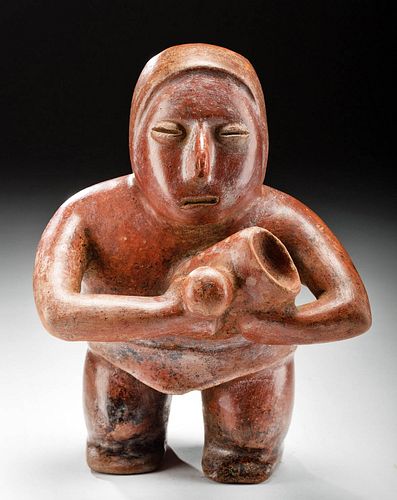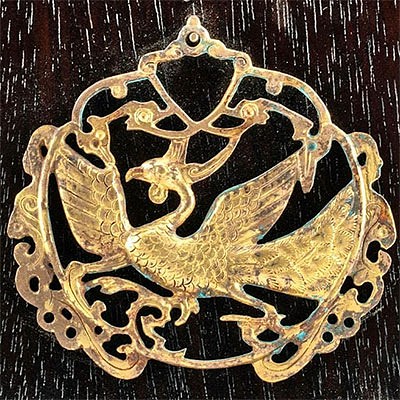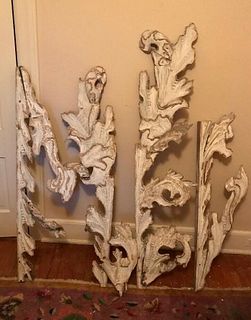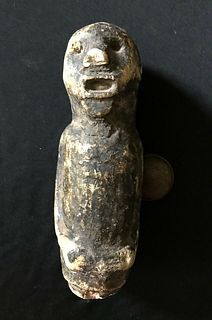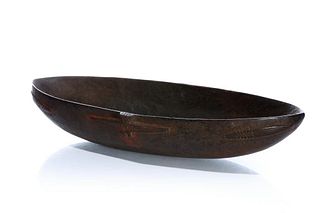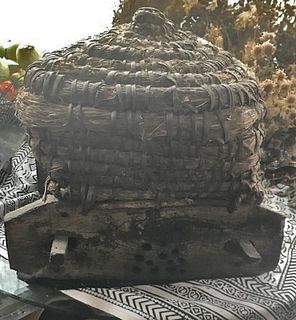Colima Redware Vessel - Shaman Holding Drum
Lot 205
About Seller
Artemis Gallery
686 S Taylor Ave, Ste 106
Louisville, CO 80027
United States
Selling antiquities, ancient and ethnographic art online since 1993, Artemis Gallery specializes in Classical Antiquities (Egyptian, Greek, Roman, Near Eastern), Asian, Pre-Columbian, African / Tribal / Oceanographic art. Our extensive inventory includes pottery, stone, metal, wood, glass and textil...Read more
Estimate:
$4,000 - $6,000
Absentee vs Live bid
Two ways to bid:
- Leave a max absentee bid and the platform will bid on your behalf up to your maximum bid during the live auction.
- Bid live during the auction and your bids will be submitted real-time to the auctioneer.
Bid Increments
| Price | Bid Increment |
|---|---|
| $0 | $25 |
| $300 | $50 |
| $1,000 | $100 |
| $2,000 | $250 |
| $5,000 | $500 |
| $10,000 | $1,000 |
| $20,000 | $2,500 |
| $50,000 | $5,000 |
| $100,000 | $10,000 |
| $200,000 | $20,000 |
About Auction
By Artemis Gallery
Jun 17, 2021
Set Reminder
2021-06-17 10:00:00
2021-06-17 10:00:00
America/New_York
Bidsquare
Bidsquare : Ancient & Ethnographic Art Through The Ages
https://www.bidsquare.com/auctions/artemis-gallery/ancient-ethnographic-art-through-the-ages-7094
Ancient art from Egypt, Greece, Italy and the Near East, as well as Asian, Fossils, Pre-Columbian, Native American, African / Tribal / Oceanic, Fine art, and much more! All categories, all price ranges... all legally acquired and guaranteed to be as described or your money back. Artemis Gallery info@artemisgallery.com
Ancient art from Egypt, Greece, Italy and the Near East, as well as Asian, Fossils, Pre-Columbian, Native American, African / Tribal / Oceanic, Fine art, and much more! All categories, all price ranges... all legally acquired and guaranteed to be as described or your money back. Artemis Gallery info@artemisgallery.com
- Lot Description
Pre-Columbian, Western Mexico, Colima, ca. 300 BCE to 300 CE. A hand-built redware effigy vessel of an anthropomorphic figure. The broad figure stands on two squat legs with a tunic-like shirt jutting over the hips slightly. Long arms hold up an instrument to his chest, and his round face has stylized details; an incised line for a mouth, a protruding nose, and two slits for eyelids. A hood or simple headdress frames the face, and the opening to the interior cavity is at the back of the head. With his trancelike expression, perhaps this is a shaman engaged in a ritualistic ceremony. The item he holds has faint dotted motifs across the surface, and the shallow indentation at the end perhaps indicates he is playing a drum made from a gourd. A captivating vessel that undoubtedly played a part in spiritual rituals, and perhaps was buried as an offering or guide for the afterlife. Size: 6.25" W x 9" H (15.9 cm x 22.9 cm)
The people in the Colima region were part of the shaft tomb culture, along with neighbors to the north in Jalisco and Nayarit. In these cultures, the dead were buried in shafts tombs. These shafts were almost always dug beneath a dwelling, probably a family home, and seem to have been used as family mausoleums, housing the remains of many related individuals. This is a figural vessel made to be placed inside those mausoleums, perhaps to mediate between the worlds of the living and the dead. A shaman was a powerful member of Colima society, and an effigy vessel placed in a tomb would ensure the deceased’s spirit having a guide through the underworld.
Provenance: private Arcadia, California, USA collection, acquired prior to 2000
All items legal to buy/sell under U.S. Statute covering cultural patrimony Code 2600, CHAPTER 14, and are guaranteed to be as described or your money back.
A Certificate of Authenticity will accompany all winning bids.
We ship worldwide and handle all shipping in-house for your convenience.
#159552Repair to front tunic with visible break line. Chip to front of shirt hem. Surface wear, minor nicks to peripheries commensurate with age. Mineral deposits, root marks, and faint pigmentation!Condition
- Shipping Info
-
All shipping is handled in-house for your convenience. Your invoice from Artemis Gallery will include shipping calculation instructions. If in doubt, please inquire BEFORE bidding for estimated shipping costs for individual items.
-
- Buyer's Premium



 EUR
EUR CAD
CAD AUD
AUD GBP
GBP MXN
MXN HKD
HKD CNY
CNY MYR
MYR SEK
SEK SGD
SGD CHF
CHF THB
THB